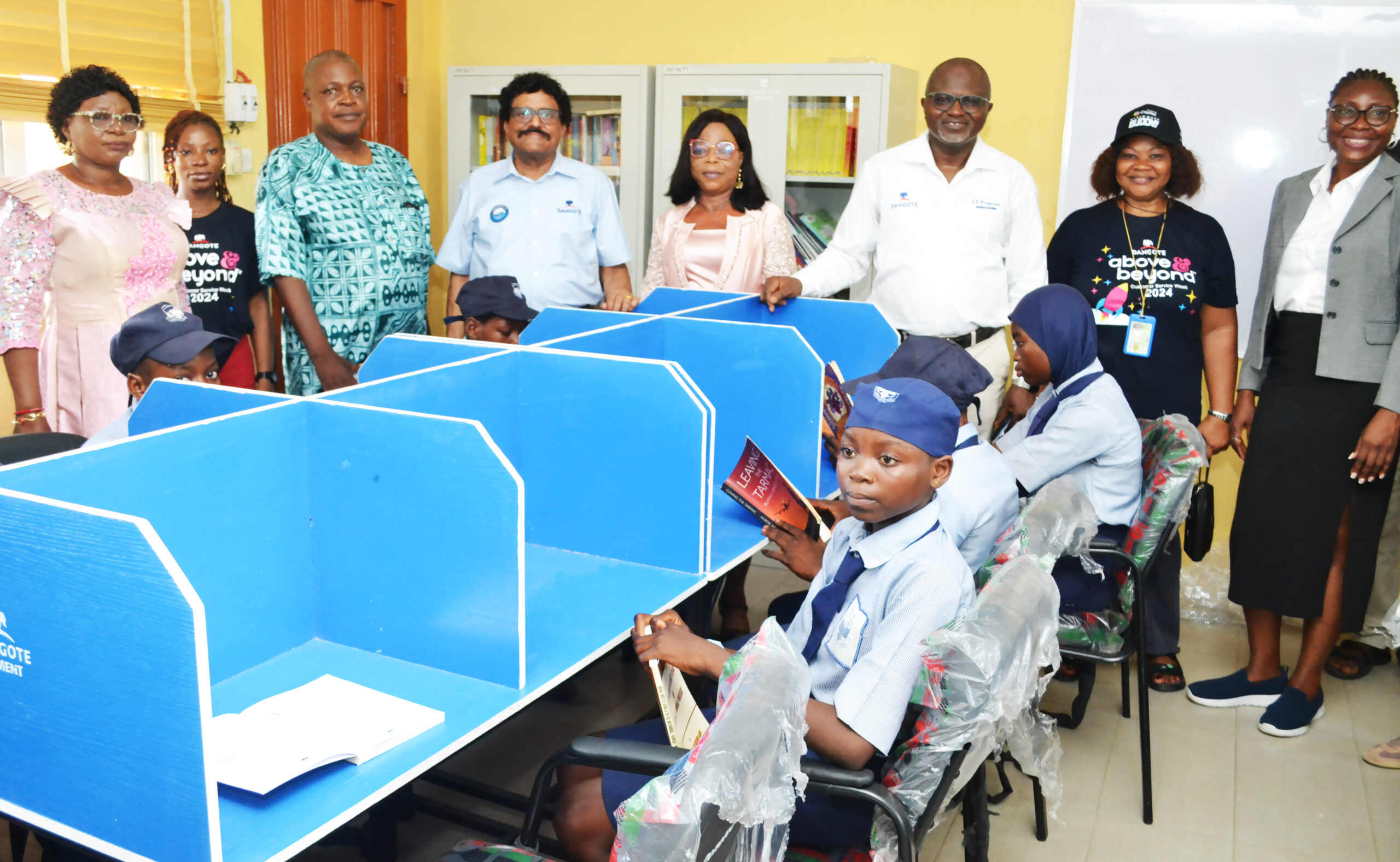Business
How ‘Leggedes’ Emerged King Of Lagos Roads

The taste of the pudding, an adage has it, is in the eating.
Many well-meaning Nigerians were clamouring for the removal of subsidy on Premium Motor Spirit (PMS), famous in Nigeria as petrol, because the subsidy regime was laced with corruption, while enriching few privileged and unscrupulous business people.
Efforts by several successive governments, including military regimes, could not summon enough courage to put an end to the menace. Why? It was always met with stiff resistance from the masses.
The fear of mass revolt and resistance discouraged several governments from taking the bull by the horn, despite counsel from well-informed and well-meaning individuals and organisations, including the World Bank.
However, the President Bola Ahmed Tinubu administration has bitten the bullet.
The date, May 29 has come to be known in Nigeria as democracy day.
However, when President Tinubu welcomed himself to office on May 29, 2023 with the stern announcement ‘subsidy is gone’, the day transformed into the day hardship was born to many people.
It was first greeted with confusion, which saw several filling stations shutdown; then an adjustment of the pump prices of petrol from N180 to N490 per litre in the Lagos area.
The removal of subsidy also saw marketers selling at different prices in different parts of Nigeria, with prices per litre, ranging from N490 to N750.
The signal, meant a new day, indeed a day of adversity to many Nigerians. But it appears that the people are confronting the demon with tenets in Robert H Schuller’s bestseller, “Tough Times Never Last, But Tough People Do”.
All over the world, Nigerians are famous for courage and their ‘can do spirit’. So it appears that with the shock, Nigerians quickly swung to survival modes.
Consequently, the unveiling of tough times by President Tinubu has seen Nigerians mutate to their tough sides. After all, life must go on.
How People in the Lagos Area Are Adapting
In the Lagos area, the working class have resorted to hibernating, rotation, trekking, skipping meals, cooking at the office, two-or-three-day working week, remote working, e-trading, among others, to keep themselves going.
An administrative manager with a manufacturing concern in the Ikeja area of Lagos State, Elendu Uwarue, lives in Gowon Estate, Ipaja.
He copes with the subsidy removal which has seen transportation cost from his house to office move from N800 to N2500 per day by hibernating.
He said, “I commute twice a week, Mondays and Fridays. I leave for the office very early, so that I can join those who hustle with their private cars at affordable rates on Monday.
“I hibernate at the office till Friday when I also make sure that I leave late to ensure that I don’t spend too much on transportation.”
In a related situation, a banker, Tosin Olaito, informed Biztellers that in her department, they have fallen back to survival instincts and resorted to rotation.
What this means according to Olaito, is that, not everyone has to be physically on duty every day.
A department of 10 people can opt to have three or four people on seat to take on the day’s tasks. Others can support remotely.
For those who have been wondering why several banking halls are sparsely populated by employees, this might be one of the reasons.
“We agree among ourselves who should be physically present and who can be sending in in-swingers. On the day you’re to support from your location, you will quickly go the branch nearest to your house and sign-in, and you’re good to go,” she said.
Transporters Lament
Biztellers reports that transporters are lamenting because the prevailing economic situation does not permit them to adjust charges to cover escalating costs from the subsidy removal.
A transporter, Segun Olawuyi, took to his Facebook page to lament that while cost of petrol, a major input for the business has gone up by over 300 percent, they are only able to increase charges by 50-100 percent in some cases.
Olawuyi wrote, “This is not a good time for transport business. Imagine paying three times what you used to, for petrol only to charge about 100 percent what you used to.”
Biztellers’ investigations revealed that fares have increased, albeit marginally in some cases. There are some extreme cases where no increase has been recorded at all.
For instance, a shuttle within the Ikeja business district used to be N100 per trip in commercial buses, say from Ikeja under-bridge to Alausa-Secretariat-Express. But it has increased to N150 per trip.
Another transporter, Olopo Andy told Biztellers that they had to reduce the fare from N200 to N150 when they noticed that majority of the people turned to ‘legging it’ instead of riding in the buses.
“Oga na leggedes be king now o. Since (President) Tinubu enter, na so, so trek people dey trek o. We no dey see passenger carry again,” he lamented.
Biztellers observed that several people were trekking the estimated four-six-kilometer distance between Express-Ikeja-Along through Awolowo Road to Express-Alausa area.
Walking long distances to and from work, business locations and other places has become increasingly popular with the people having no choice.
Some people have been asserting, albeit jokingly that those trekking in Nigeria because of hardship would soon earn her a world record in the Guinness World Records (GWR).
General impact
The greatest impact of the fuel subsidy removal might yet be in the in the mounting angst among the populace. Everything imaginable has seen their prices jumped through the roof, including foodstuffs. This has left the populace irritable.
People are lamenting everywhere about economic hardship. The public outcry doesn’t seem to be heading anywhere near the ears of those in power with fears becoming palpable that any little thing can ignite public outrage of uncontrollable measures.
However, a public affairs analyst, Charles Ikewe told Biztellers that it doesn’t all have to do with the subsidy.
“There was hardship before President Tinubu was sworn in,” he started. “What is evident,” he continued, “is that things have gone from bad to worse, which the masses can longer bear.”
He traced it to previous governments who could not make bold and timely policy pronouncements.
The cumulative result from Ikewe’s perspective might be best expressed in the words of a former American President, Abraham Lincoln, “You can fool all the people some of the time, and some of the people all the time, but you cannot fool all the people all the time.”
As things stand, the removal of subsidy on petrol has enthroned ‘leggedess’ as king of Nigerian roads, but only time will tell how long it would be and how the people react to it.
Business
NANTA Champions Nigeria’s Tourism Revival With ₦742m Investment
The National Association of Nigeria Travel Agencies (NANTA) has disclosed an investment of ₦742 million over the past three years to position Nigeria as a premier tourism destination at the annual World Travel Market (WTM) in London.
Speaking in Lagos on Thursday, NANTA’s immediate past president, Mrs. Susan Akporiaye, revealed that the funds were used for exhibition pavilions, magazine publications, and logistical support for members attending the prestigious trade show.
“In three years, NANTA has spent ₦742,226,100 to deliberately put Nigeria on the global tourism map at the WTM. This was achieved with only skeletal support in 2022 and 2023,” Akporiaye said.
READ MORE: Adeleke Represents SW On Ad Hoc Committee on Nat’l Electrification Plan
According to Akporiaye, the association received minimal support in its early years of participation.
In 2022, La Campagne Tropicana Beach Resort and Air Peace contributed by placing advertisements on the Nigerian pavilion and in the association’s magazine. By 2023, Ibom Air joined the effort, supporting NANTA with adverts, while La Campagne Tropicana maintained its support.
The 2024 edition, however, marked a turning point. Akporiaye noted that for the first time, Ibom Air went beyond advertisements to co-exhibit, alongside Eko Hotels and Sabre Travel Network. Their contributions made Nigeria’s representation at WTM more robust and impactful.
“Sabre Travel Network also supported us, so we had their graphics, as well as Ibom Air’s, displayed on our stand. Their contributions made our 2024 participation very grand,” she added.
Akporiaye highlighted that 90% of the funds for WTM participation came directly from NANTA members, underscoring their commitment to Nigeria’s tourism development.
“This shows that we are true patriots, and we deserve national recognition for our efforts,” she said.
NANTA began attending the WTM in 2022 to fill the gap left by Nigeria’s absence from the event for over 10 years.
The association saw the need to promote the country’s tourism potential and create international business opportunities for its members.
“It’s been a wonderful and successful three years that NANTA has participated in WTM, filling the gap left by Nigeria’s absence for over 10 years. We are glad to have handed over the baton of Nigeria’s participation at WTM to the Nigerian government this year,” Akporiaye said.
Through its participation, NANTA has secured affiliations with international tourism boards, organized product training for members, and raised awareness about Nigeria as a destination.
These efforts have also led to partnerships with global airlines and travel boards, fostering significant growth for members’ businesses.
“Our participation at WTM has helped members’ businesses grow significantly. We have formed partnerships with airlines and travel boards worldwide.
“Our greatest achievement at WTM is drawing Nigeria’s attention back to the need to exhibit at the global travel market,” Akporiaye said.
The initiative has also inspired members to expand their horizons into global Meetings, Incentives, Conferences, and Exhibitions (MICE) events.
Business
CSR: Dangote Cement Fuels Education With Support Projects At Lagos Schools

Dangote Cement Plc, a leading cement manufacturer, has donated multi-million Naira educational support projects to secondary schools in Lagos as part of its social investment initiatives.
The company in a statement explained that the move is aimed at complementing the government’s efforts in providing quality and sustainable education in the state.
It was gathered that the projects were commissioned and handed over to various schools in the Ikoyi-Obalende Local Council Development Area, align with the Sustainable Development Goals (SDGs) on education. These goals focus on ensuring inclusive, equitable, and quality education, as well as promoting lifelong learning opportunities for all.
The projects, warmly received by both teachers and students, include 100 dual school desks for Ilado Community Junior High School and Wahab Folawiyo Senior High School, alongside a refurbished and fully equipped Chemistry Laboratory at the Government Senior Secondary School, Ikoyi.
ALSO READ: Dangote Cement Ibese Fetes Host Communities’ Senior Citizens
Also donated were reading tables, chairs, and bookshelves for the library at Government Junior Secondary School, Ikoyi.
A celebration also took place at Falomo Junior High School and Ireti Senior Grammar School, both in Ikoyi, where the company donated 20 brand-new desktop computers to the ICT departments of the schools.
At the event at Government Junior College, Ikoyi, the Group Managing Director of Dangote Cement Plc, Arvind Pathak, explained that social investment is a key part of Dangote Cement’s operations.
He said the company is dedicated to giving back to society and supporting the sustainable development of local communities, especially in areas where it operates.
Pathak’s address was delivered by Wakeel Olayiwola, the Head of Social Performance at Dangote Cement Plc.
He said, “education holds a pivotal role in the development and empowerment of the youths in the country. As a cornerstone for societal advancement, it serves as a critical tool for personal growth, economic development, and national progress. An educated youth population not only fosters individual success but also contributes significantly to the nation’s overall wellbeing.
“At Dangote Cement, we believe that providing quality education to our youth is vital and should not be left solely as the government’s responsibility. Thus, we aim to partner with the government to enhance educational development in this regard.
“The projects we are handing over today are part of our 2024 Corporate Social Responsibility (CSR) programme for selected schools within the neighbourhood of Dangote Cement Plc’s Head Office in Ikoyi, Lagos. These projects were selected based on need assessments in collaboration with the schools.”
As a responsible corporate entity, Pathak noted that Dangote Cement’s commitment to societal wellbeing, with investments in four key areas: Education, Healthcare, Infrastructure, and Economic Empowerment programmes.
“This year, our plants in Ibese, Ogun State; Obajana, Kogi State; Gboko, Benue State; Okpella, Edo State; and our Pan-African operations have launched several social investment projects. These efforts contribute to the quality of life in our host communities and support sustainable national development,” he added.
Pathak thanked the Lagos State Government, the Tutor General/Permanent Secretary, and the school management teams for their collaboration in identifying the schools’ needs and ensuring the timely completion of the projects.
Dr. Idowu Olufunke Oyetola, Tutor General and Permanent Secretary of Education District 3, Lagos State Ministry of Education, who was represented by Bolaji Rotimi Ajayi, Director of School Administration, praised the long-standing partnership with Dangote Cement, noting that the schools selected for the donations were fortunate beneficiaries. “We hope for more collaborations that will positively impact education,” she added.
The principals of the recipient schools expressed their gratitude after the formal handover of the projects.
Odunlami Olubunmi, Principal of Ilado Community Junior High School, Ikoyi, thanked Dangote Cement for the new desks, stating that the donation would significantly improve the learning environment for the students, helping to prepare them for a brighter future.
Bamidele Ayotunde, Principal of the school with the refurbished laboratory, urged other businesses to follow Dangote Cement’s example in supporting local schools, pointing out the positive impact of the laboratory’s renovation on the school’s learning environment.
The Principal of Ireti Senior Grammar School, Ikoyi, whose school received the new desktop computers, described the donation as a positive development and expressed hope for more support in the future.
Pupils also shared their appreciation for the contributions. Abiola Jamaudeen, a lab prefect at Government Senior College, Ikoyi, promised that the laboratory would be used to its fullest potential and well-maintained.
Lawal Rumayzo Abdulsalam, a student at the school, said the new library equipment would foster better reading habits and create a more conducive environment for learning, ultimately preparing them for success. Some students even performed special songs to welcome the Dangote team to their schools.
Business
Adeleke Flaunts Local Content Records, Industrialisation Progress

Osun State Governor, Senator Ademola Adeleke has celebrated the local content achievements of his administration, claiming it has transformed the state’s economy and strengthened local businesses.
The Governor, represented by his Deputy, Prince Kola Adewusi, made this declaration at the 2024 Trade Fair of the Osun State Chamber of Commerce and Industry held at the Trade Fair Complex, Osogbo.
This year’s fair is themed “Developing Osun Local Content Value Chain for Shared Prosperity”.
Gov Adeleke, reviewing his records on local content in the last two years, expressed pride to announce that his administration had set an unrivaled record in the promotion and commitment to local content development.
ALSO READ: Diri Celebrates Consummate Democrat, GEJ @ 67
According to Gov Adeleke, “our major infrastructural projects are being handled by local contractors. We are building up our indigenous companies to handle major jobs outside the state. Our local engineers are fully engaged in all facets of the construction processes. Our supply chain feeding the construction processes is also locally focussed and sourced.
“As local content is a tool for economic development, our multi billion naira infra plan has a focus beyond Osun money revolving within the Osun economy. We seek to stop capital flights, thereby ensuring a financially vibrant local economy that contributes to the fight against poverty and underdevelopment.
“Beyond a solvent grassroots economy, our policy ensures skill transfer. Local workers are empowered with requisite skills which they subsequently deploy as skilled service providers. We are building a pool of skilled citizens across all sectors.
“Additionally, our local content agenda is a strategy for employment creation. By adopting direct labour in many project executions, we provide jobs for the artisans and the unemployed. Osun is indeed a huge construction site with increasing job opportunities for the unemployed.
“Local content as a state strategy also drives our focus on infra growth and development. We are eager to bridge the infrastructure deficit to enhance trade and investment. We have recorded huge progress in that respect.
“Our administration is also removing possible bottlenecks in business operations in Osun state. The processing of Certificates of Occupancy is now within a 45-day window. This is billed to enhance business capacity to attract financial transactions and support within the business ecosystem.
“The era of multiple taxation is coming to an end as Osun state has now introduced a harmonized tax system. Our tax agency has become truly business friendly.
“To facilitate investment, we revive and strengthen the Osun State Investment Promotion Agency (OSIPA). The agency puts under one roof all regulatory and certification agencies of the Government.
“To accelerate the pace of industrialization, we revive the Free Trade Zone to provide over one million direct and indirect jobs for the people. We establish Markets with modern facilities, set up farm produce aggregation centres, and put life into moribund industries among others.
“The State Government recently hosted an Industrial Investment Summit. The event attracted local and international investors. While the current industrial policy is being vigorously implemented, we plan to review the policy to accommodate new realities occasioned by modern innovations and Artificial Intelligence.”
While restating his administration’s readiness to partner with the organized private sector, Gov Adeleke urged the business chamber to expand its scope, calling on the business leaders to reach out within and outside Nigeria for the development of businesses in Osun state.
“As the voice of Osun business, you are not a government agency. You represent the private sector. Your task is to expand your scope and mobilize businesses to grow as an umbrella body. I task you to interact with all sectors of the state economy. You have a duty to shake off bureaucratic burden and truly act like a private sector body”, the Governor charged the chamber.
The Commissioner for Commerce and Industry, Rev Bunmi Jenyo listed out several programmes and policies of the state government designed to support growth and development of businesses in Osun state, declaring that Osun is open for business.
According to the Commissioner, the recent industrial investment summit showcased the huge potentials of the state and expressed delight at the huge number of investors who showed up and expressed interest to tap into the investment potentials of Osun State.























